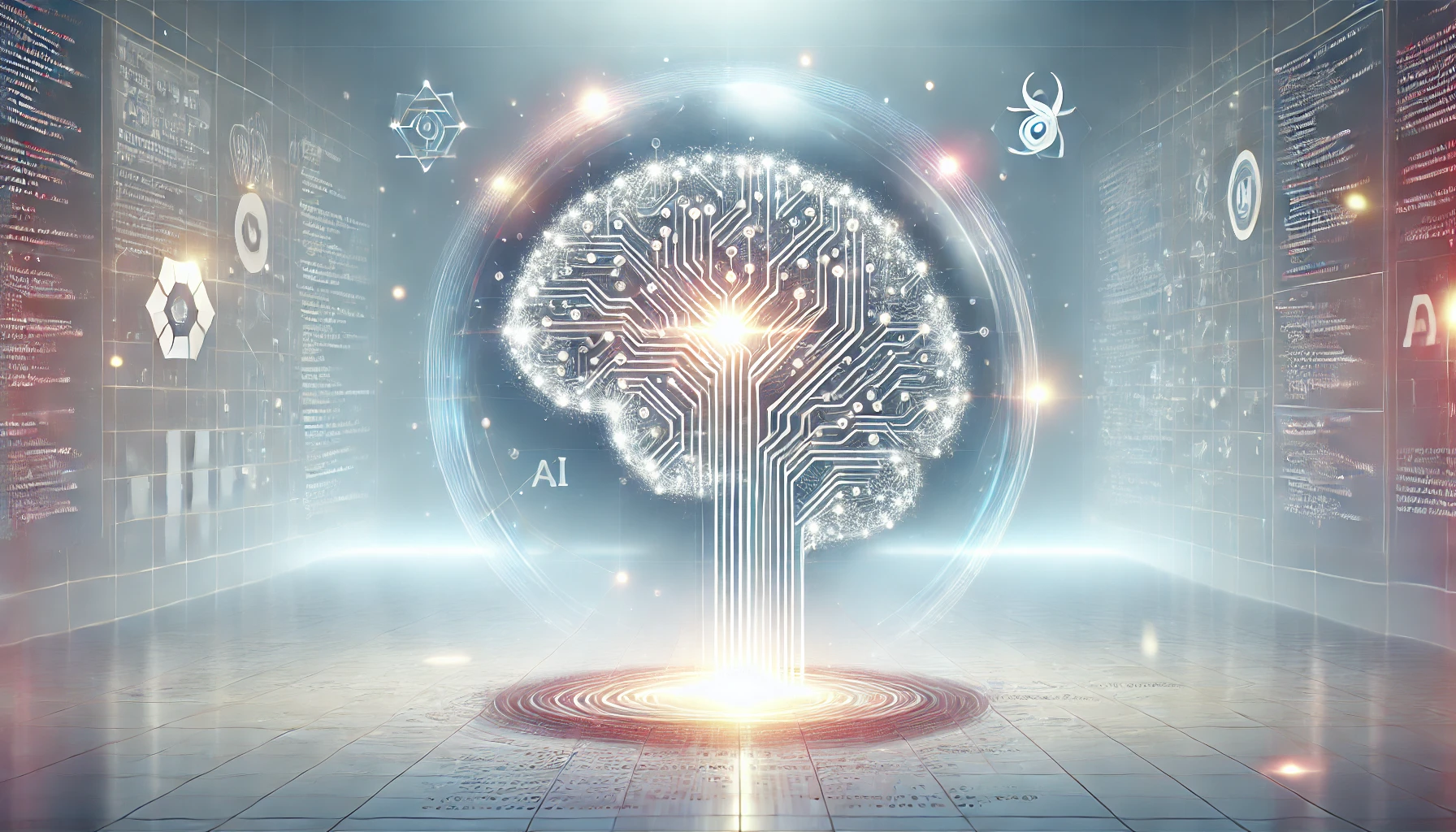The Future of Artificial Intelligence in Programming

Introduction
Brief overview of AI in technology
Artificial Intelligence (AI) has rapidly evolved over the past few decades, transforming various sectors by enabling machines to perform tasks that traditionally required human intelligence. From natural language processing to image recognition, AI technologies have become integral in enhancing operational efficiency and innovation. As AI continues to advance, its integration into technology is reshaping how we interact with software and systems, paving the way for smarter solutions that learn and adapt over time.
Importance of AI in the programming landscape
In the realm of programming, AI is becoming an indispensable tool for developers. It streamlines coding processes, automates repetitive tasks, and assists in debugging, allowing programmers to focus on more complex problem-solving. AI-powered tools can analyze vast amounts of code, offering suggestions and optimizations that enhance productivity and code quality. This shift not only accelerates development cycles but also democratizes programming by making it more accessible to those with varying levels of expertise.
Purpose of the article: to explore current trends and future implications of AI in programming
This article aims to delve into the current trends in AI as it relates to programming, examining the tools and methodologies that are shaping the industry today. Additionally, we will explore the future implications of AI in programming, considering how these advancements may redefine the roles of developers and the very nature of software creation. By understanding these dynamics, we can better prepare for a future where AI and programming coexist and collaborate to drive technological progress.
Current AI Tools for Developers
A. Code Assistants (e.g., GitHub Copilot, Tabnine)
Code assistants like GitHub Copilot and Tabnine are revolutionizing the way developers write code. These tools leverage advanced machine learning algorithms to provide real-time code completion and intelligent suggestions based on the context of the code being written. By analyzing vast repositories of existing code, these assistants can predict the next line of code a developer is likely to write, drastically reducing the time spent on mundane coding tasks. This not only enhances productivity but also encourages best practices by suggesting optimized code snippets and patterns that developers may not have considered.
B. Automated Testing Tools
Automated testing has become a crucial aspect of software development, and AI-driven testing frameworks are at the forefront of this evolution. These tools utilize machine learning algorithms to create and execute tests with minimal human intervention. They can adapt to changes in code and automatically generate test cases based on the behavior of the application. The benefits are significant: increased test coverage, reduced manual effort, and the ability to identify edge cases that might otherwise go unnoticed. By integrating AI into testing, developers can ensure higher quality software with fewer bugs, while also accelerating the release cycles.
C. AI for Debugging
Debugging can often be one of the most time-consuming aspects of programming. AI tools designed for debugging are changing this narrative by employing advanced analytics to identify and fix bugs more efficiently. These tools analyze code patterns and execution flows to pinpoint anomalies and suggest potential fixes. For instance, AI can learn from historical bug data to recognize similar issues in new code, allowing developers to address problems before they escalate. By streamlining the debugging process, AI not only saves time but also helps maintain a higher standard of code quality throughout the development lifecycle.
The Role of Machine Learning in Software Development
A. Predictive Analytics in Coding
Predictive analytics, powered by machine learning (ML), is emerging as a powerful tool in software development. By analyzing historical codebases and project performance metrics, ML models can identify patterns that indicate potential bugs or code inefficiencies. For instance, by examining the frequency and types of past errors, these models can forecast areas of code that are likely to introduce bugs in future iterations. This proactive approach allows developers to address vulnerabilities before they manifest into significant issues, ultimately leading to more robust and reliable software.
B. Intelligent Code Review
Automated code review systems, enhanced by AI, are transforming the way code quality is assessed. These systems can evaluate code for adherence to best practices, identify security vulnerabilities, and suggest improvements based on industry standards. By employing natural language processing and machine learning techniques, intelligent code review tools can analyze the semantics of code, offering insights that go beyond simple syntax checks. This not only streamlines the review process but also provides developers with constructive feedback that fosters continuous learning and code quality enhancement, ultimately leading to more efficient development workflows.
Enhancing Developer Productivity
A. Reducing Routine Tasks
One of the most significant benefits of AI in software development is its ability to automate mundane tasks, thereby allowing developers to focus on more complex and creative aspects of their work. Routine activities such as code formatting, repetitive testing, and environment setup can consume substantial amounts of time. AI-driven tools can handle these tasks efficiently, learning from developer preferences and project specifications to tailor automation processes. By minimizing the time spent on these routine activities, developers can significantly enhance their productivity and redirect their efforts towards innovation and problem-solving.
B. Improved Collaboration Tools
Effective collaboration is essential in software development, particularly in teams that may be distributed across various locations. AI-enhanced platforms are revolutionizing team collaboration and communication by providing smart features such as automated meeting scheduling, task assignments, and real-time code sharing. These tools utilize machine learning algorithms to analyze team interactions and project workflows, offering insights that help optimize collaboration. For instance, AI can suggest the best times for meetings based on team availability and even summarize discussions or action items. By fostering seamless collaboration, these platforms enable teams to work more efficiently and cohesively, ultimately leading to faster project delivery and better outcomes.
Skills Required for Future Developers
A. Understanding AI and ML Basics
As artificial intelligence (AI) and machine learning (ML) continue to integrate into software development, a foundational understanding of these technologies is becoming increasingly important for developers. Familiarity with the principles of AI and ML enables developers to leverage these tools effectively in their projects. This knowledge helps them understand how AI-driven systems work, allowing for better collaboration with data scientists and engineers. Furthermore, as AI continues to shape coding practices, developers who grasp these concepts will be better equipped to implement intelligent solutions and enhance their own coding processes.
B. Adaptability and Continuous Learning
The rapid evolution of technology necessitates that developers cultivate adaptability and a commitment to continuous learning. With new tools, languages, and methodologies emerging regularly, the ability to embrace change is crucial. Developers must stay updated with the latest advancements in AI, cloud computing, and other relevant fields to remain competitive. Engaging in ongoing education—through online courses, workshops, and industry conferences—will not only enrich their skill set but also foster a mindset geared towards innovation and problem-solving. This proactive approach to learning will empower developers to navigate the complexities of future projects and lead their teams effectively in an ever-changing landscape.
Ethical Considerations
A. Bias in AI Models
As AI systems become increasingly integrated into programming and software development, the potential for bias in AI models poses significant ethical concerns. Biased AI can lead to unfair or discriminatory outcomes, particularly if the training data reflects societal inequalities or stereotypes. This risk is particularly pronounced in areas like hiring algorithms and automated decision-making systems, where biased outputs can perpetuate existing disparities. Developers must prioritize fairness and transparency in their AI implementations, actively seeking to identify and mitigate biases in their models. By fostering ethical AI practices, the tech community can work towards creating more inclusive and equitable technologies.
B. Job Displacement Concerns
The rise of AI in programming has sparked concerns about job displacement, with many fearing that intelligent systems will replace human programmers. While it's true that AI can automate certain tasks, the reality is more nuanced. Rather than outright replacement, AI is likely to transform roles within the industry. Developers may find themselves taking on more strategic and creative responsibilities, while routine tasks become automated. Emphasizing the importance of adaptability and continuous learning will help mitigate these fears, as developers can evolve alongside technological advancements. Ultimately, the focus should be on how AI can augment human capabilities rather than replace them, fostering a collaborative relationship between humans and machines.
The Future Landscape of Programming
A. AI as a Co-Developer
The future of programming envisions a collaborative environment where AI functions as a co-developer alongside human programmers. This partnership has the potential to revolutionize the coding process, with AI taking on roles such as code generation, testing, and even architectural design. By harnessing the power of machine learning, AI can analyze vast amounts of code, learning from past projects to suggest improvements and optimizations in real-time. This synergy not only accelerates the development cycle but also enhances creativity, allowing developers to focus on high-level problem-solving and innovation while AI handles more routine tasks. As this collaboration deepens, we can expect to see a new dynamic in software development, where human intuition and AI efficiency combine to produce superior outcomes.
B. New Programming Paradigms
The integration of AI into programming practices is likely to usher in new paradigms that could reshape how we approach software development. As AI tools become more sophisticated, we may see a shift toward programming languages and frameworks that are specifically designed to leverage AI capabilities. This could include more declarative programming styles, where developers specify what they want the program to achieve, allowing AI to determine the best way to implement it. Additionally, the emergence of domain-specific languages tailored for AI applications may become prevalent, enabling more intuitive interactions with AI systems. Such shifts will not only change the languages we use but also the fundamental practices and methodologies of software development, paving the way for a more efficient and innovative programming landscape.
Conclusion
In summary, the impact of artificial intelligence on programming is profound and multifaceted. AI is not only enhancing developer productivity through tools like code assistants and automated testing frameworks but is also reshaping the fundamental processes of software development. By serving as a co-developer, AI enables programmers to focus on higher-level tasks while improving the quality and efficiency of code. As we look to the future, it is clear that understanding AI and machine learning basics, along with adaptability, will be essential skills for developers in this evolving landscape.
As we move forward, it is crucial for developers to embrace AI tools and methodologies. By staying informed about emerging technologies and integrating AI into their workflows, programmers can not only enhance their own capabilities but also contribute to a more innovative and effective development environment. The future of programming is here, and it is time for developers to seize the opportunities that AI presents to thrive in this changing landscape.
Related Article Navigating the IT Job Market as a Recent Graduate Top 10 Certifications for Advancing Your Career in Data Science How to Craft a Perfect Cover Letter for IT Jobs Balancing Act: How to Job Search Effectively While Working Full-Time Open Source Contributions: How to Get Started Leadership Styles: How Different Approaches Impact Team Dynamics and Success From Any Field to Data Science: Your Ultimate Career Switch Blueprint How to Get a Data Science Job as a Fresher Personal Branding in the Digital Age: Building a Compelling Online Presence for Job Search Success How to Build a Strong GitHub Portfolio for IT Jobs The Future of Remote Work: How Technology Is Redefining the Workplace The Future of Artificial Intelligence in Programming
